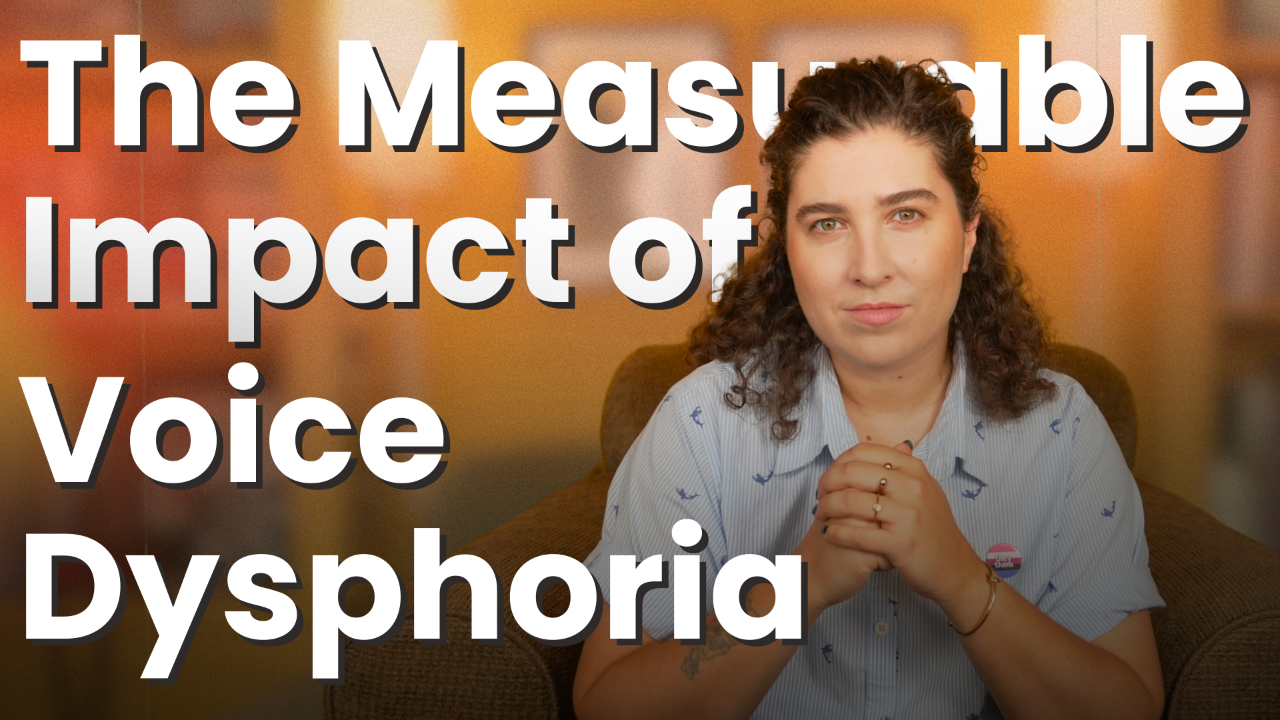The Nasality Test (is it nasality or aryepiglottic sphincter contraction?)
Jun 19, 2023
One commenter on my TikTok asked: "How do you get the nasal voice more natural sounding?"
I was not sure of this commenter's goals (whether they were trying to brighten or darken their voice, etc); however, this is a question I get a lot from trans women, transfeminine folks, or anyone working to feminize their voice. This is because when we attempt to brighten the voice, we can sometimes create a pinched, nasal sound (see the video above for an example).
The nasal sound isn't necessarily good or bad, but if it isn't what you're going for in your target voice, this blog post will provide a few solutions to reduce that sound.
Firstly, it's essential to identify whether your voice is nasal or heavy from aryepiglottic sphincter contraction. To determine this, we can use the Nasality Test. The test involves observing the airflow through your nose while producing sound. When you pinch your nose and notice a start-and-stop pattern in the air, it indicates nasalilty. On the other hand, if the sound remains consistent despite closing your nose, it suggests aryepiglottic sphincter contraction rather than nasality.
Watch the video for an example of this test in action!
Now, let's address a common concern: feminizing the voice. Many individuals seeking to feminize their voices often experience a pinched or nasal quality when attempting to raise their larynx. To overcome this challenge, we need to create more space in the mouth while maintaining a feminine sound.
If your voice exhibits nasality, characterized by a sound similar to Fran Drescher or Lois Griffin, this means that the soft palate (the thing your uvula is attached to) is in a lower position in the mouth, causing air to be redirected through the nose. To raise this and create a little more space in the mouth, begin by breathing in on an "Ah" vowel as if you are gasping. This action naturally expands the back of your throat and increases the space in your mouth. By maintaining this open space and producing sound, you can achieve a less nasal tone.
On the other hand, if your voice has a heavy quality caused by aryepiglottic sphincter contraction, a different approach is required. In this case, it's important to relax your voice rather than exert excessive effort to raise the larynx. By reducing the activation energy and speaking at a slightly lower volume, you can achieve a lighter and more natural sound.
Identifying whether your voice is nasal or heavy from aryepiglottic sphincter contraction is crucial in addressing this concern effectively. The Nasality Test allows you to distinguish between the two and choose the appropriate technique.
If you want to know more about these exercises and make positive steps towards your ideal feminine voice, you can check out my course, Mindful Voice Feminization!
Want weekly tips, resources, and insights on trans voice training? Sign up for my newsletter and get the latest content delivered straight to your inbox. It's free!









